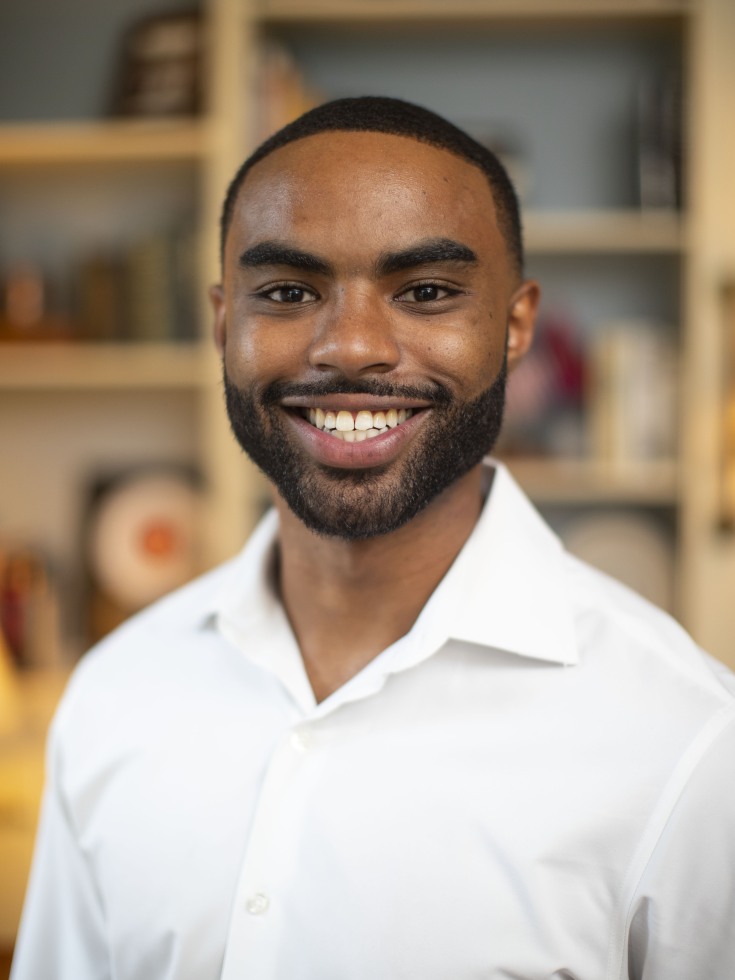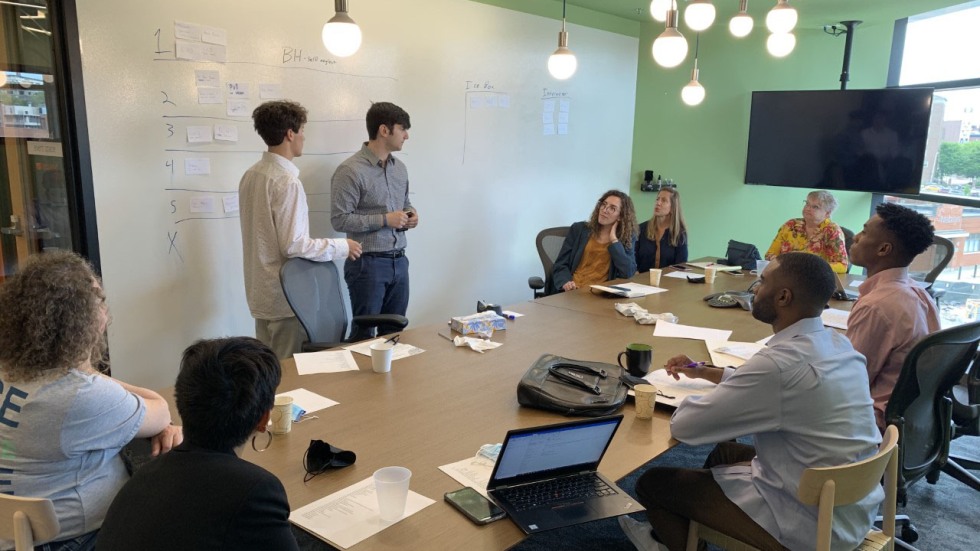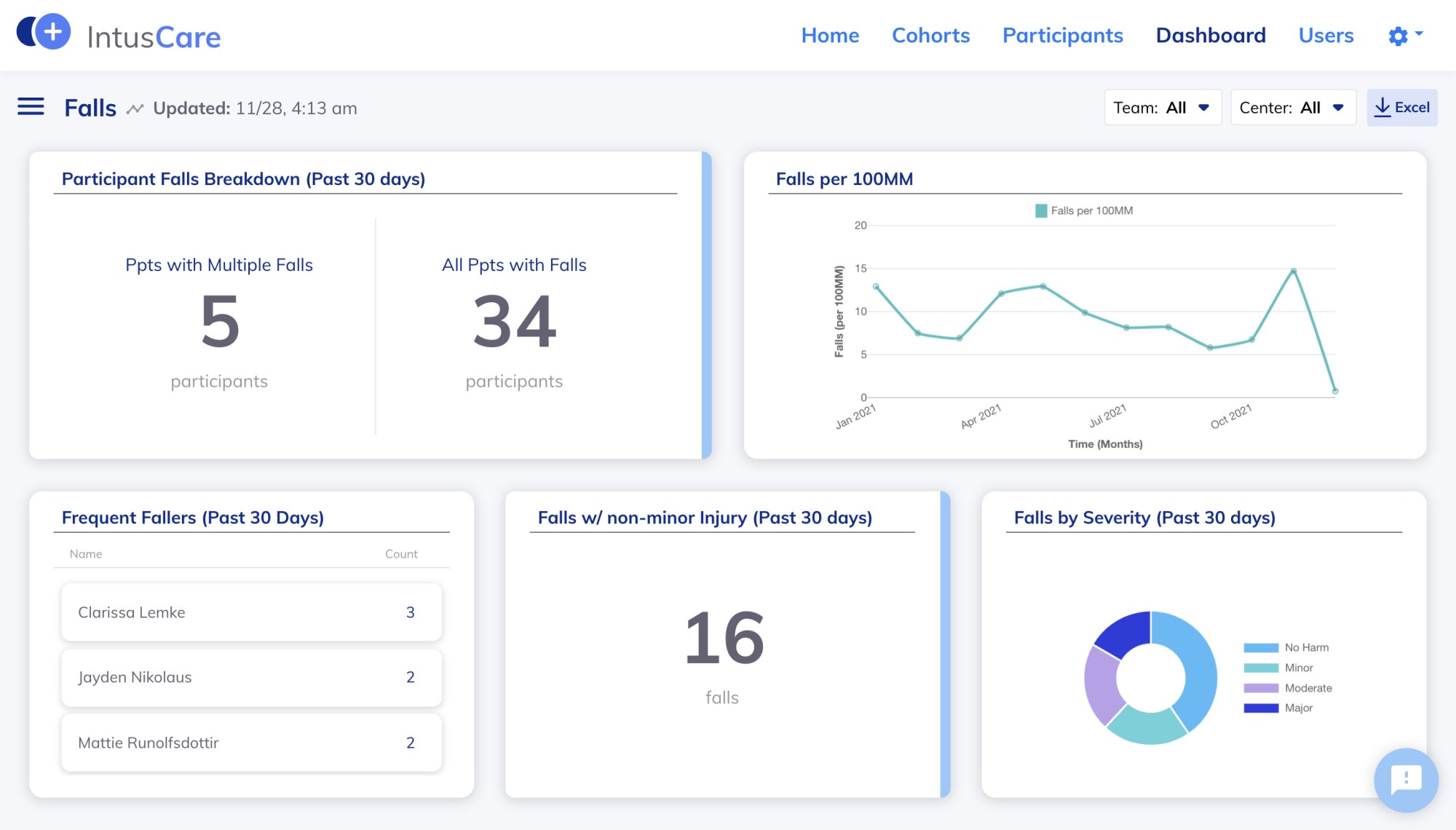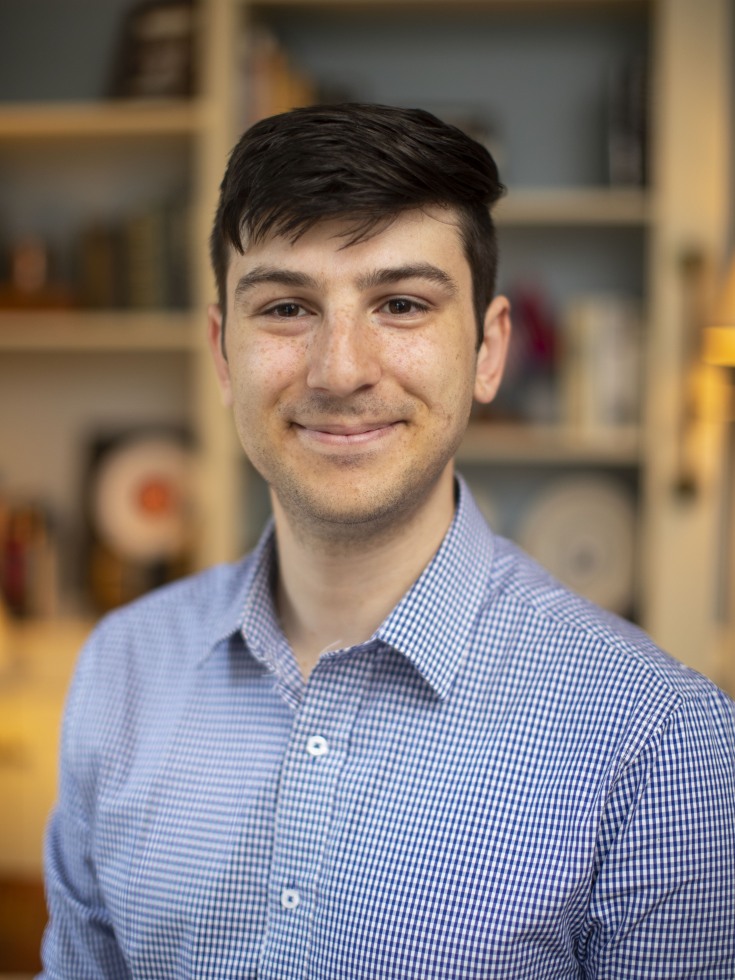PROVIDENCE, R.I. [Brown University] — Today’s health care providers are never at a loss for patient data. The challenge, they say, is efficiently spotting what they need to know amid reams of inconclusive numbers.
For example: Managers at one provider in the federal Program of All-Inclusive Care for the Elderly system, which provides medical care and social services to older adults, easily track key metrics like hospitalization rates by quarter. However, that statistic couldn’t explain why an uncharacteristically high number of members entered the hospital in the last quarter of 2020. Without context, the explanations were practically limitless, but because of the vulnerable population served — Medicare and Medicaid patients — the stakes were high.
Fortunately, the provider had recently partnered with a startup called Intus Care, founded by four Brown University undergraduates who are using data to improve health care for the elderly. The team showed this client, one of their first, how to use their proprietary platform to discover that the hospitalizations were correlated with infections. Then they drilled down even further to reveal that the problematic infections were mostly of the urinary tract and groin.
Making those connections was crucial, said Robbie Felton, Intus Care CEO and a Brown senior concentrating in public health, because those types of infections are not only preventable but can often be avoided through proactive care measures at home.
“We felt really good about our role in this,” Felton said. “We were able to help them identify patients at risk, which allowed the care provider to put in place the measures to keep those people healthy and out of the hospital.”
Intus Care, an analytics platform that synthesizes health care data to identify risks, visualize trends and optimize care, was born and nurtured at Brown. That’s where the four student founders, each with different interests and skills, met and connected. It’s where they shaped, tested and refined their ideas with the support of Brown faculty and other members of the University community. And through the Nelson Center for Entrepreneurship, it’s where they turned their ideas and plans into a bona fide business.




